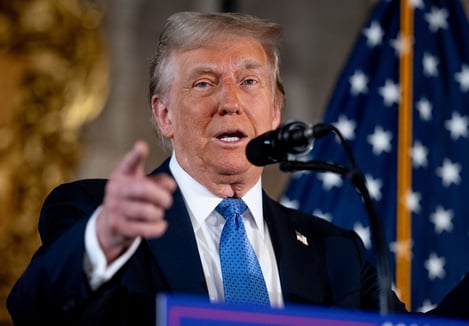Donald Trump’s Crypto Vision: A Transformative Shift for Digital Assets
Donald Trump plans to issue an executive order making cryptocurrency a national priority. The initiative includes creating a Crypto Advisory Council, reevaluating regulations, and possibly pausing legal actions against major crypto firms. It aims to position the U.S. as a leader in blockchain and digital assets while boosting innovation and economic growth. Critics, however, raise concerns over favoritism, regulatory clarity, and environmental impact.
beingMJ
1/17/20252 min read


As Donald Trump’s presidency approaches, a potentially groundbreaking initiative is making headlines: an executive order to prioritize cryptocurrency as a national focus. This bold move, as reported by LiveMint, underscores Trump's ambition to position the United States as a global leader in the blockchain and cryptocurrency sectors. The proposed executive order aims to create a Crypto Advisory Council, reevaluate regulatory frameworks, and potentially pause ongoing lawsuits against major crypto firms like Binance and Coinbase. Let’s delve into what this initiative entails and its implications for the U.S. economy, technology, and innovation.
The Details of the Executive Order
Trump’s crypto-centric executive order reportedly seeks to achieve the following:
Crypto Advisory Council: Establishing a body to provide guidance on policy, regulation, and innovation in the digital asset space.
National Crypto Strategy: Integrating cryptocurrencies into the U.S. financial system as a legitimate and protected asset class.
Legal Reevaluation: Temporarily halting legal proceedings against leading crypto exchanges to reassess regulations.
Bitcoin Stockpile: Speculatively, the U.S. may create a national Bitcoin reserve to hedge economic risks and foster a blockchain-powered economy.
This ambitious framework signifies a stark departure from the Biden administration’s cautious and regulatory-driven approach. Trump’s move suggests a focus on collaboration and growth, favoring innovation over stringent oversight.
Strategic Rationale: Why Now?
The timing of this initiative is significant. Cryptocurrencies, particularly Bitcoin, have experienced volatile growth over the past decade. Despite market instability, blockchain technology has fueled groundbreaking advancements across finance, supply chain, healthcare, and more.
However, the U.S. risks falling behind as nations like China, which launched its digital yuan, and European Union countries with Central Bank Digital Currency (CBDC) initiatives gain traction. Trump's executive order reflects an urgency to reclaim global dominance in crypto and blockchain innovation.
Potential Benefits
Boosting the U.S. Economy: Integrating cryptocurrencies into the mainstream could attract investments, foster job creation, and expand economic opportunities.
Leading Innovation: By embracing blockchain, the U.S. can lead in industries such as decentralized finance (DeFi), non-fungible tokens (NFTs), and Web3 applications.
Strategic Bitcoin Reserve: Holding Bitcoin as a national asset could provide a hedge against inflation and economic uncertainties.
Market Confidence: Regulatory clarity can stabilize crypto markets and encourage institutional participation.
Critics’ Concerns and Challenges
While the initiative is ambitious, it has its detractors:
Favoritism Allegations: Critics suggest Trump’s ties with crypto influencers could result in biased policymaking.
Regulatory Confusion: The proposed halt on legal proceedings may create uncertainty, potentially undermining market stability in the short term.
Environmental Concerns: Cryptocurrencies, particularly Bitcoin, face criticism for their significant energy consumption, posing challenges to sustainability goals.
Security Risks: Increased reliance on blockchain networks could expose the U.S. to new cybersecurity threats, necessitating robust safeguards.
What It Means for the Crypto Ecosystem
For crypto enthusiasts, this policy marks a major victory. It validates years of advocacy to recognize digital assets as integral to the global economy. Entrepreneurs in the blockchain space are likely to benefit from reduced regulatory hurdles, while institutional investors may find newfound confidence to enter the market.
On the other hand, global competitors may accelerate their own crypto-related initiatives, creating a more dynamic but competitive digital asset landscape.
Conclusion
Donald Trump’s executive order to prioritize cryptocurrency represents a bold vision that could reshape the digital asset landscape in the United States. By fostering innovation and adopting crypto as a strategic asset, this move has the potential to position the U.S. as a trailblazer in blockchain technology. However, its success will depend on carefully balancing innovation with sustainability and security.
Contact Us :
beingaimj@gmail.com
© 2024. All rights reserved.
